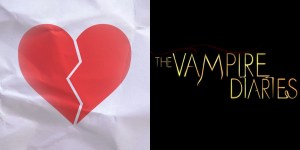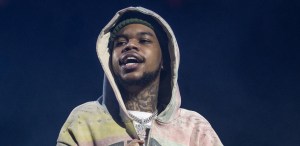Millions of DirecTV subscribers found themselves unable to access popular Disney-owned channels, including ABC and ESPN, starting Sunday evening. The sudden blackout has frustrated many viewers, especially sports fans eagerly anticipating the college football season kickoff and the ongoing U.S. Open tennis tournament.
Ultimately, the cause of this disruption lies in a contentious contract dispute between Walt Disney Co. and DirecTV. The disagreement centers around the financial terms of their partnership, specifically the fees DirecTV pays Disney for broadcasting rights.
Videos by PopCulture.com
The Blackout: When and how it happened
The channel outage began at around 7:20 p.m. Eastern Time on Sunday, Sept. 1, catching many viewers off guard. The timing was especially unfortunate as it coincided with several high-profile sporting events. Tennis fans were left in the lurch during fourth-round matches of the U.S. Open, while college football enthusiasts missed the start of a highly anticipated game between Louisiana State University and the University of Southern California.
DirecTV, which boasts a customer base of 11.3 million subscribers according to Leichtman Research Group (per CBS News), is the third-largest pay TV provider in the United States. As a result, this widespread outage has affected a significant portion of the American television audience.
What the dispute’s about
At the heart of this conflict are two main issues: rising carriage fees and disagreements over channel bundling practices.
1. Escalating Carriage Fees: DirecTV has expressed concern over the increasing costs demanded by Disney for broadcasting rights. For instance, ESPN’s monthly subscriber fee has reportedly surged by 40% since 2019, now standing at approximately $10 per subscriber. DirecTV claims that the average customer is paying around $270 annually for Disney’s channels alone.
2. Channel Bundling Practices: DirecTV is advocating for more flexibility in how it offers channels to subscribers. The company wants to provide customers with the option to choose smaller, more tailored bundles of networks. This approach, they argue, would allow viewers to potentially lower their costs by only paying for the channels they actually want to watch.
Ray Carpenter, DirecTV’s Chief Financial Officer, elaborated on this point during a conference call with analysts: “Customers are forced to buy these big, bloated packages to watch the Disney Channel. This leads to a higher cost and a lower value quotient.”
Disney’s Stance
Disney, for its part, maintains that it has offered “flexibility and terms” to DirecTV similar to those extended to other distributors. In a joint statement, Disney Entertainment co-chairmen Dana Walden and Alan Bergman, along with ESPN Chairman Jimmy Pitaro, stated their position:
“DirecTV chose to deny millions of subscribers access to our content just as we head into the final week of the US Open and gear up for college football and the opening of the NFL season. While we’re open to offering DirecTV flexibility and terms which we’ve extended to other distributors, we will not enter into an agreement that undervalues our portfolio of television channels and programs.”
DirecTV’s Response
DirecTV has taken a strong stance against what it perceives as Disney’s “anti-consumer approach.” Rob Thun, DirecTV’s Chief Content Officer, accused Disney of “refusing any accountability to consumers, distribution partners, and now the American judicial system,” via CBS News. He further stated: “They want to continue to chase maximum profits and dominant control at the expense of consumers – making it harder for them to select the shows and sports they want at a reasonable price.”
Efforts to compensate and resolve issues
In an attempt to appease affected customers, DirecTV is offering a $20 credit to subscribers impacted by the blackout. Customers can claim this credit by visiting the company’s website.
As of Tuesday afternoon, Sept. 3, there was no clear indication of when the channels might be restored. DirecTV CFO Ray Carpenter described the situation as “not a run-of-the-mill dispute,” suggesting that a quick resolution may not be forthcoming.
Context and trends in the industry
This type of dispute is not unprecedented in the television industry. In fact, it marks the second consecutive year that ESPN has gone off the air during the U.S. Open due to contractual disagreements. Such blackouts have become increasingly common in recent years as media companies and distributors grapple with evolving consumer preferences and the rise of streaming services.
While most blackouts typically last from a few days to several weeks, some have stretched on for much longer. For instance, a dispute between The Weather Channel and Verizon resulted in a 1,567-day blackout for Verizon customers, according to S&P Global.








